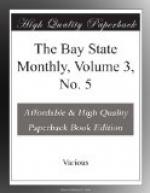“No occupation is more honorable than the public service. The desire to engage in it is a worthy one. The ambition to hold and properly discharge the duties of a position under the government is creditable to the citizen. The public offices in this country should be as freely open to all as are places in other vocations of life. No man should be debarred by birth, or locality, or race, or religious, or political belief from engaging in the public service. To deserve this he should not be required to render partisan service or personal allegiance to any party leader, nor be compelled to purchase the favor or patronage of any public official. The public offices are a public trust, to be held and administered with the same exact justice and the same conscientious regard for the responsibilities involved as are required in the execution of private trusts. The test for appointments should be superior qualifications, and not partisan attachment nor partisan service; continuance in office should depend upon real merit demonstrated in the actual performance of duties and not upon the urgency of Congressmen or petitions of other citizens.”
Of Mr. Crapo it may justly be said that on every occasion of life in which he has been called upon for any duty, he has always risen adequate to the occasion, and even exceeded in his efforts the most sanguine expectations of his friends. He has much of that reserve power which does not manifest itself until it is wanted, and then the supply is equal to the demand.
* * * * *
THE AUTHORITATIVE LITERATURE OF THE CIVIL WAR.
By George Lowell Austin.
I.
At the present time, everything bearing upon the history of the American civil war has special interest. Nearly a quarter of a century has passed since the struggle began, and during the interval asperities have died away and peace and harmony hover over a united people.
During the war and in the years immediately following its cessation, a number of soldiers and civilians wrote histories, on the Union side, some of these being careful and exhaustive studies of limited fields of action, and others of the entire field of operations. It necessarily happened, however, that, owing to misconceptions arising from their opposite points of view, their lack of personal knowledge, and the absence of authentic documentary evidence, these writers were not always able to penetrate the plans and purposes of the Confederate leaders, or even to describe with entire accuracy the part borne by the Confederate troops in particular engagements.
As time goes on, the deficiency is being met, and the memoirs of those Confederate soldiers and civilians who bore a prominent part in the struggle, either in the field or the council chamber, and who had a full knowledge of the facts, are fast coming to light, and are perused with more than common interest by military actors and students. The true and exhaustive history of the civil war cannot be written until all the facts shall have been made known. Even then, the reader must always bear in mind who states the facts, and also that the truth is oftener found in the memoir of some gallant and straightforward soldier than in that of a politician.




